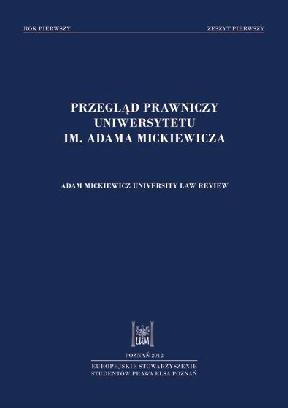Ustanie bytu prawnego spółki kapitałowej a wygaśnięcie jej długów
The end of the legal existence of a capital company and the expiration of its debts
Author(s): Rafal MarekSubject(s): Constitutional Law, Law on Economics
Published by: Uniwersytet im. Adama Mickiewicza w Poznaniu
Keywords: Polish commercial law; capital companies’ liquidation; liquidated companies’ debts in the Polish law; concept of contractual relation in the Polish Supreme Court jurisprudence;
Summary/Abstract: Under Polish law, indebted companies can be liquidated without satisfying all the creditors. Therefore, debts may remain without a debtor. This issue is controversial in the Polish judicature. One way of thinking considers debt to be so closely joined with the debtor that when the debtor’s existence ends with no successor, the debts also end their existence. The other opinion holds that debts of the liquidated company do not cease to exist and may be claimed from the guarantor. As a rule, in Polish law debt is not strictly connected to the debtor or creditor and a change of debtor or creditor is possible. An old Ius Commune rule nomina ossibus inhaerent is not recognized in Poland. Thus the opinion that debts do not vanish after the liquidation of a company is more correct from the dogmatic point of view. Such a stance is also supported by a recent change in the Law on National Court Register.
Journal: Przegląd Prawniczy Uniwersytetu im. Adama Mickiewicza
- Issue Year: 2016
- Issue No: 6
- Page Range: 293-306
- Page Count: 14
- Language: Polish

